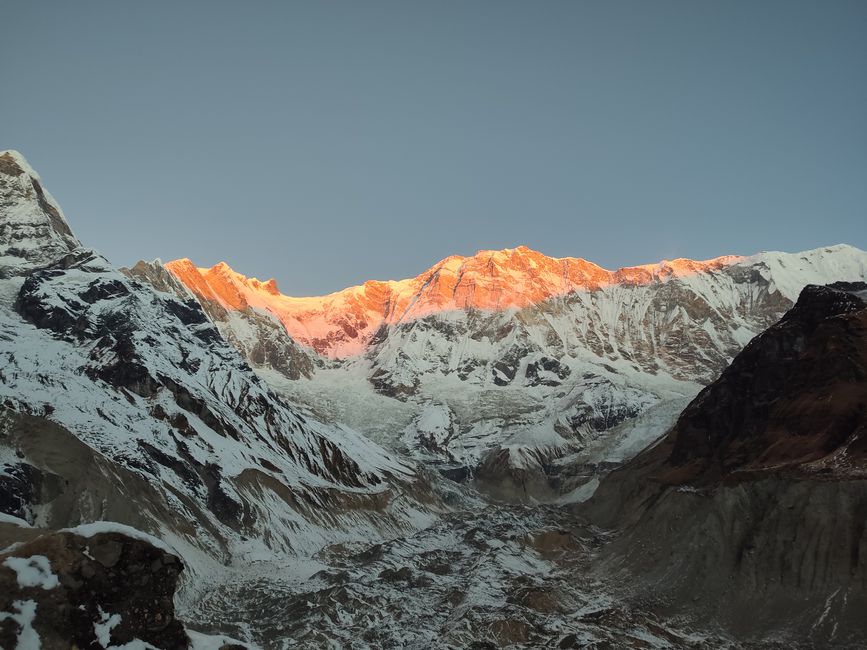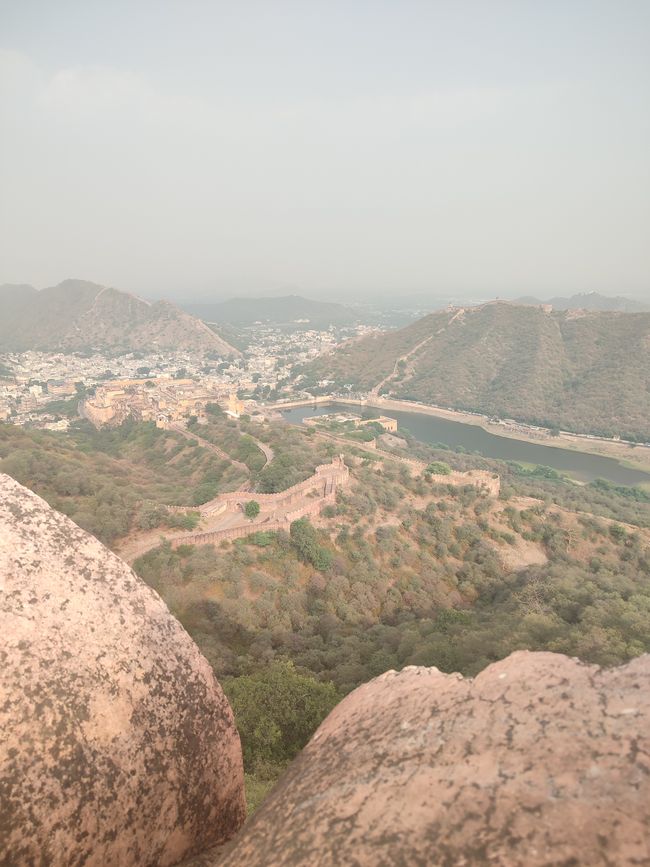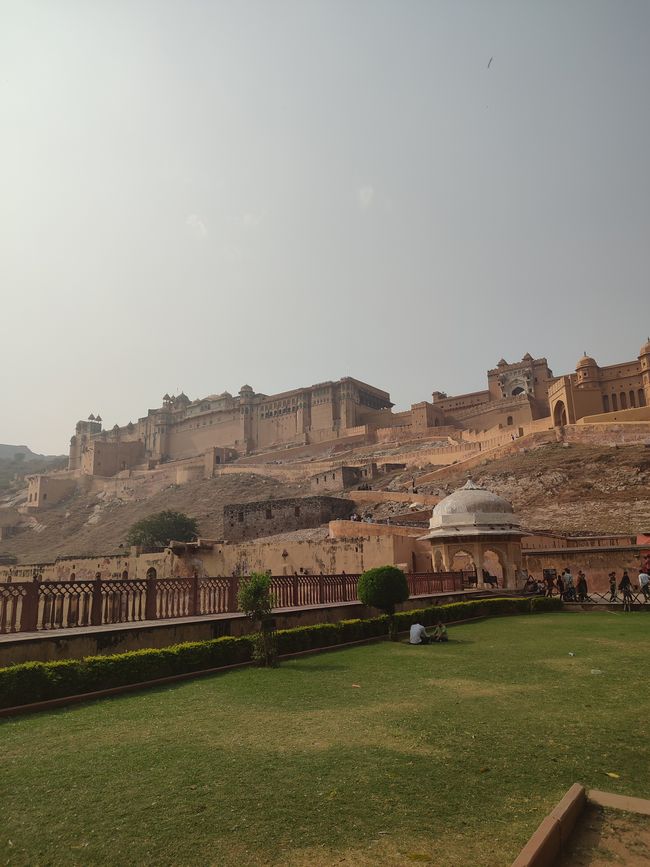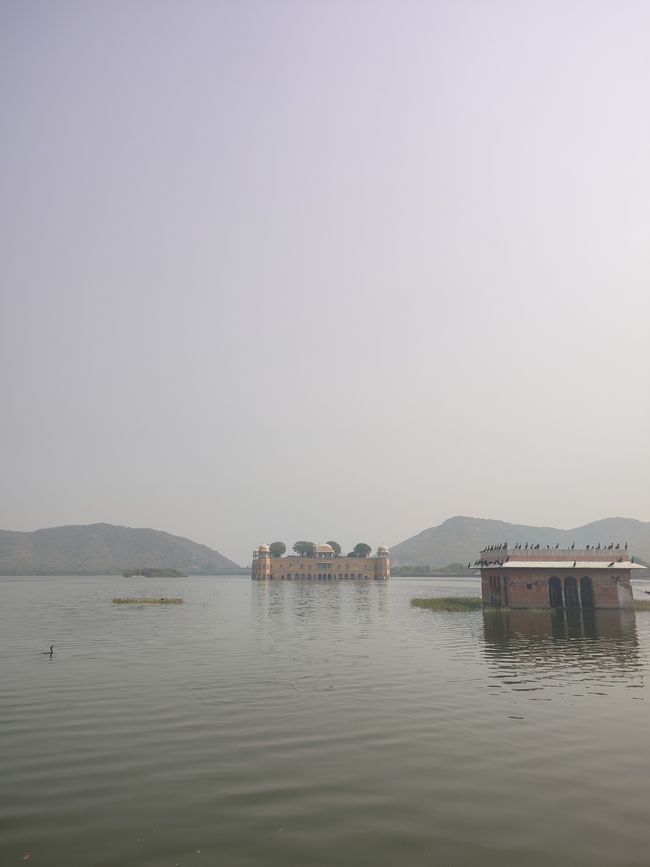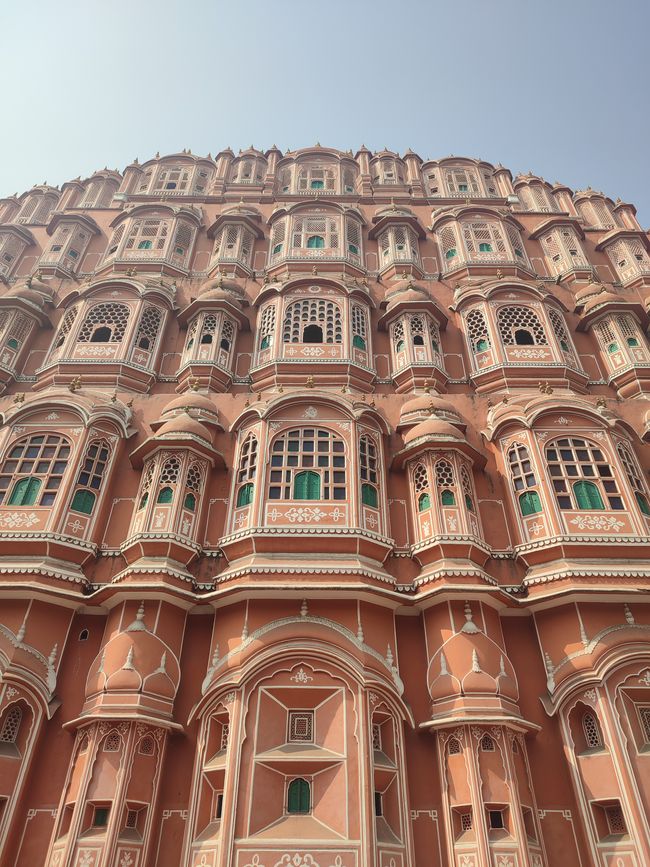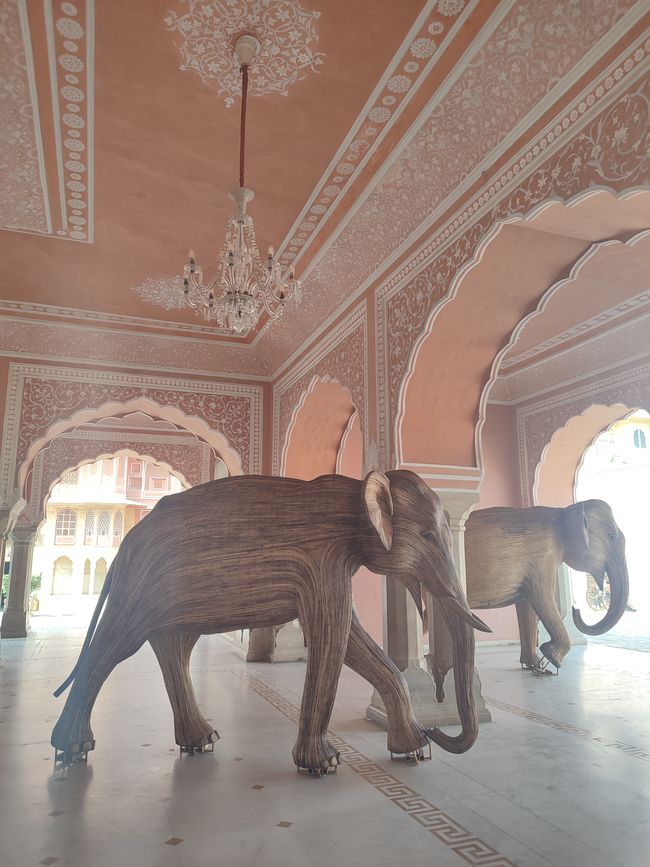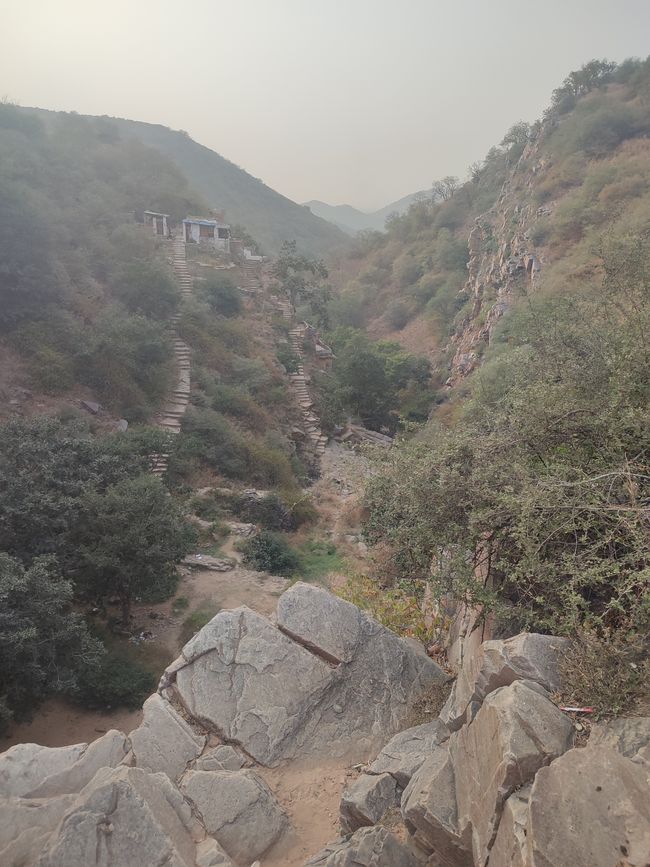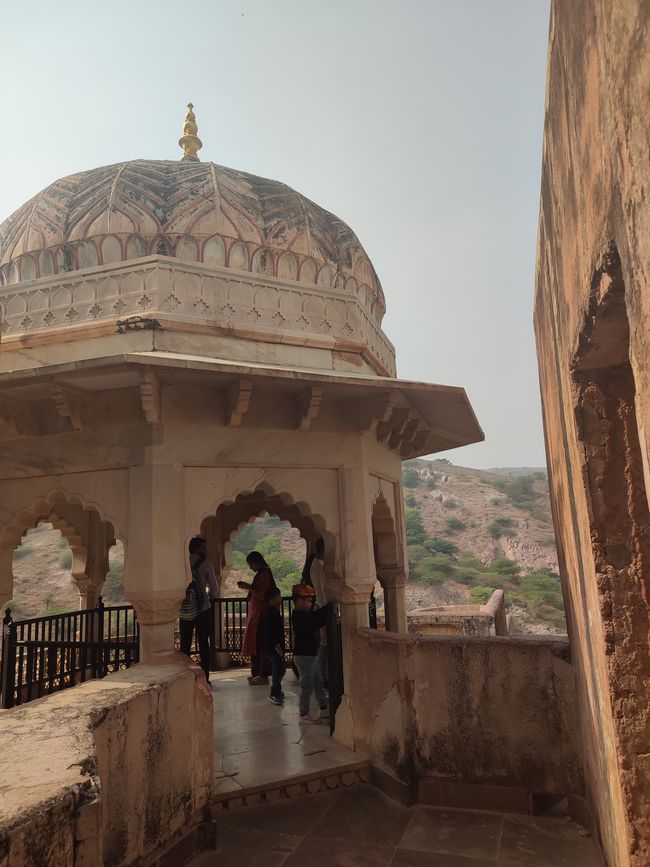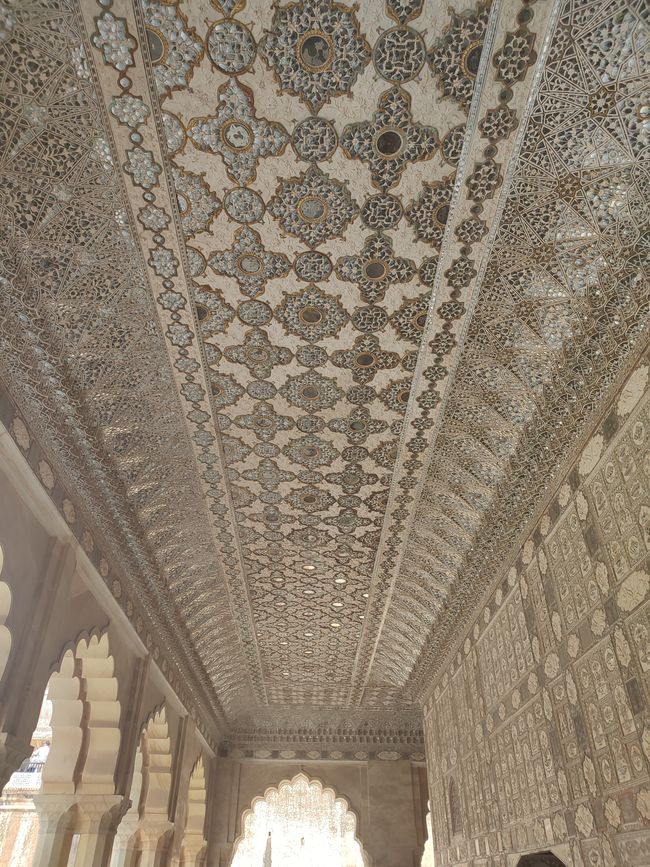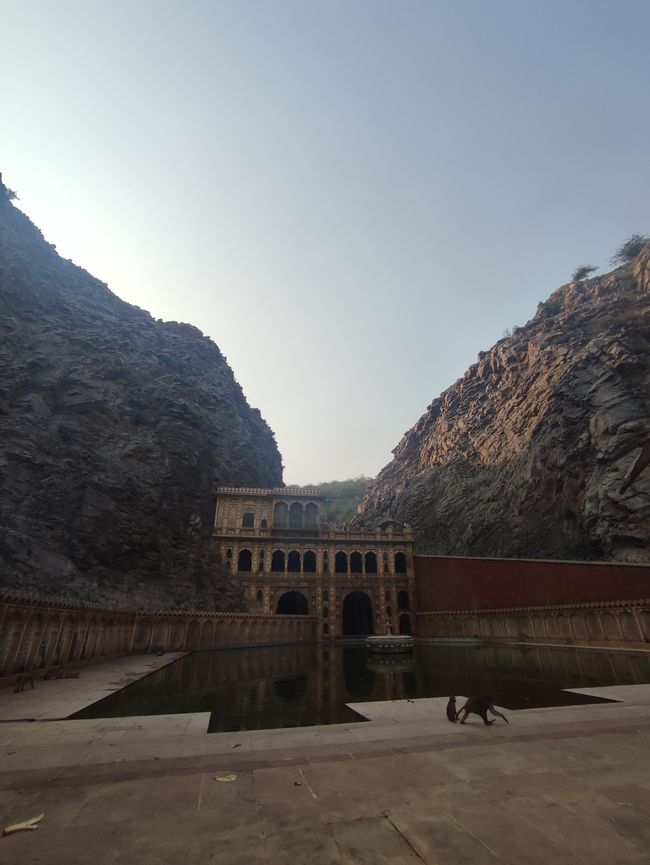Jaipur - If
Опубликовано: 10.11.2023
Подписаться на новостную рассылку
To be honest, there is not much to say about the cities in this entry, as in the following about Delhi. I had my energy low in these cities and was especially looking forward to soon reaching the quiet and clean Himalayan region of India. At the moment I feel as if I have seen enough Indian metropolises. For the first time, the masses of people, the noise of the city, which now seemed incredibly loud, the dirt, the smog and the omnipresent chaos were too much. Maybe there was also the fact that I always prefer to avoid taxis and TukTuks, on the one hand to save money, but also because walking for longer gives you a much better feel for the city and the people and I walk a lot and for a long time. In addition, hitchhiking is incredibly easy in India, so there are days when six people give me a ride on their scooter or motorbike, but to be honest, getting into someone else's car is too risky for me here.
So after walking through the city in the sun all day, the smog tickling my larynx and the Indians festively demonstrating to me who could honk the longest and loudest, I finally arrived in nature in the evening, on a hiking trail where I was alone. Being alone has rarely felt so good. I arrived in a wonderful gorge where a strange looking Hanuman temple looked down on a small pond with frogs croaking and little chipmunks replenishing their water supplies. There I read "The Café on the Edge of the World" for a while and thought about the book, which asked fundamental questions, until I was interrupted from my daydreaming by a group of young Indians. We chatted amusedly about the deserted place and as darkness fell they headed back towards civilization. Because one of the temple residents proudly showed us pictures on his cell phone of leopards and lions sneaking like chipmunks to the pond in the dark to catch prey and today I didn't feel like a hopeless chase in a remote Indian gorge, where I was After a lion family's midnight snack ended, I joined them without further ado and they even drove me back to the city.
The next day I spent most of my time at another wonderful temple where I continued reading my book and letting my mind wander.
I had already dealt with the question of happiness and whether it can even be achieved. I kept thinking about the fact that pleasure and joy are essential, but you also have to accept sadness and frustration, to put it briefly. But I had completely ignored the question of what joy actually comes from until I read the book. At the age of 21, I already had the privilege and luck of gaining an insight into different cultures and getting to know people of all different kinds. There were funny ones, funny ones, serious ones, smart ones, stupid ones, ambitious ones, annoying ones, interesting ones, lively ones, nice ones and unfriendly ones.
However, one type of person has always stood out. They were people who were good-natured, had a lot of energy, lived down-to-earth and simply seemed happy. They were people who infected you with their passion and energy and you envied them and asked yourself what this person did to be the way they are. I have met two such people so far, a 22-year-old biologist in Sri Lanka and a nurse in Aachen University Hospital. Both of them talked about their job, but not as if it was a way to get money and was the least of evils, but rather their passion that they were allowed to pursue day after day and a fascination that I otherwise only shared with my little niece I know someone who can occupy themselves with a straw for half an hour without a hint of disinterest. It seems as if these people have discovered why they are here and know the purpose of their existence.
So many people never ask themselves this question or ask themselves so late that they no longer have the strength, are no longer flexible enough or are too afraid to turn their dream into reality. And what does social welfare do when it has no drive of its own? It follows the majority and believes that just because everyone starts studying immediately after school, I have to do it too and keep working towards the next step on the career ladder in order to get more money and reputation. The purpose of the money is to act as a kind of 'compensation' for putting so much time into work, to make up for the past time with items that are supposed to make you happy. When you buy the new designer couch, you experience the feeling of happiness, but you also know how much it cost and that you now have to work harder to make up for it or to buy the next item. As you spend even more time working and need greater compensation, you can easily end up in a vicious cycle of consumption that gives you the illusion of happiness. In addition, people go on vacation to recharge their batteries and to enjoy life instead of living out everyday life in such a way that they don't want to escape from it. If you're still working towards retirement day after day in order to finally realize your dreams on day
But just because you know the reason for your existence doesn't mean you have a fulfilling life. Putting this insight into reality is probably much more difficult than you think. It's probably completely normal to have doubts about whether you'll earn enough money with it, whether you'll be able to make provisions for your old age and whether others will take you seriously. But like I said, these people who have already figured it out and are in the process of living it out have a way about them that is actually always associated with success. Sometimes it seems that these people are really lucky because you have the feeling that so many positive things are happening to them and everything is going according to their plan. But anyone who invests so much passion, joy and time in something is not lucky, it is rather the result and the payment for all these things. And even if you imagine the worst-case scenario and don't have any decent retirement provision at the start of your statutory pension, the worst thing is that you just keep doing what you love. So you can only win, you just have to have the courage.
Now the only question is how to find out what your own purpose for existence is and that is probably a question to which no one has a concrete answer. Some people find out by spending a lot of time in nature, trying out many jobs, training, meditating, traveling and thus getting to know other cultures and perspectives, reading books or figuring it out as a teenager. Regardless of this, I think two factors are obligatory. There is no one who can answer this question for you, you have to come up with the solution yourself and you have to take the time to think about it and that is the only way to concentrate.
The great thing is that these people's fear of death has already been eliminated. As far as I can think, there are two main reasons to be afraid of this event. One is that you still want to do so many things and make your dreams come true. But if you're already doing what you want and love every day, why should you be afraid of missing out on something? The second reason is the fear of the unknown. Actually, this shouldn't even happen anymore. Regardless of whether you believe in nirvana, heaven, paradise or just the natural decay of the organism's individual biological parts, you actually know what's coming. But with these people it seems as if they don't trust their faith 100% and doubt it. Why else should you be afraid of the perfect state? Here I see the advantage of atheists who approach this topic scientifically. They have no other choice than to see death as the final end of existence and therefore know what awaits them irrevocably. Of course, there are other reasons to be afraid of death, such as: B. that you can no longer take care of your family, who may depend on you for their income. But I don't have a clever solution to this yet, except that as a parent you should try everything in your power to raise your children to be independent people who can realize themselves and to do this through love, education and the moral standards that you impose on the children gives the way.
So I sat there in the temple for several hours, slept a little and thought for a while. When an employee of the temple came to me for the third time and asked me if everything was okay and then even asked suspiciously if I was drunk or had taken other drugs since I was sitting here so absent-minded, I laughed and said no I'm pretty sure I didn't believe it. Then he walked away and I heard him talking to a colleague in Hindi and pointing at me every now and then. The only Anglicism I heard was "Security" and when I heard that I quickly packed my things and strolled away. It's quite cheeky that you are seen as a security problem if you as a tourist take your time and try to enjoy something like a temple complex and try to use its charisma as inspiration to philosophize about life. He probably would have preferred to see me, like all the other tourists, rushing through the complex and looking at it through my 10 megapixel camera. What a bully, I would even call him a scoundrel, a scoundrel, a good-for-nothing or a rogue (◠‿◕)
Подписаться на новостную рассылку
Отвечать
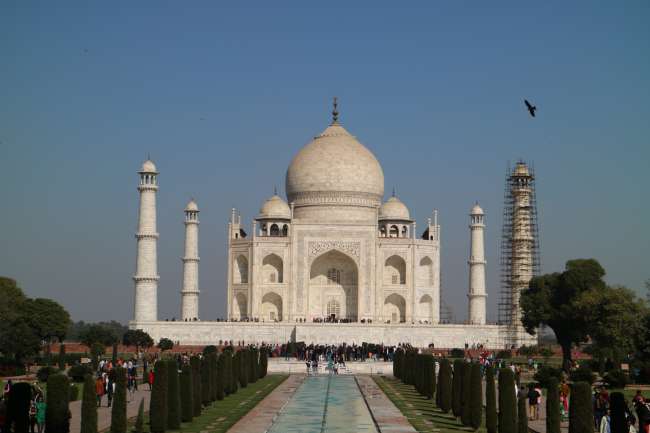
Отчеты о поездках Индия

